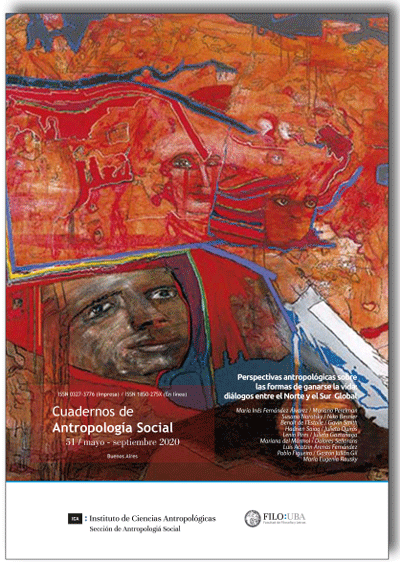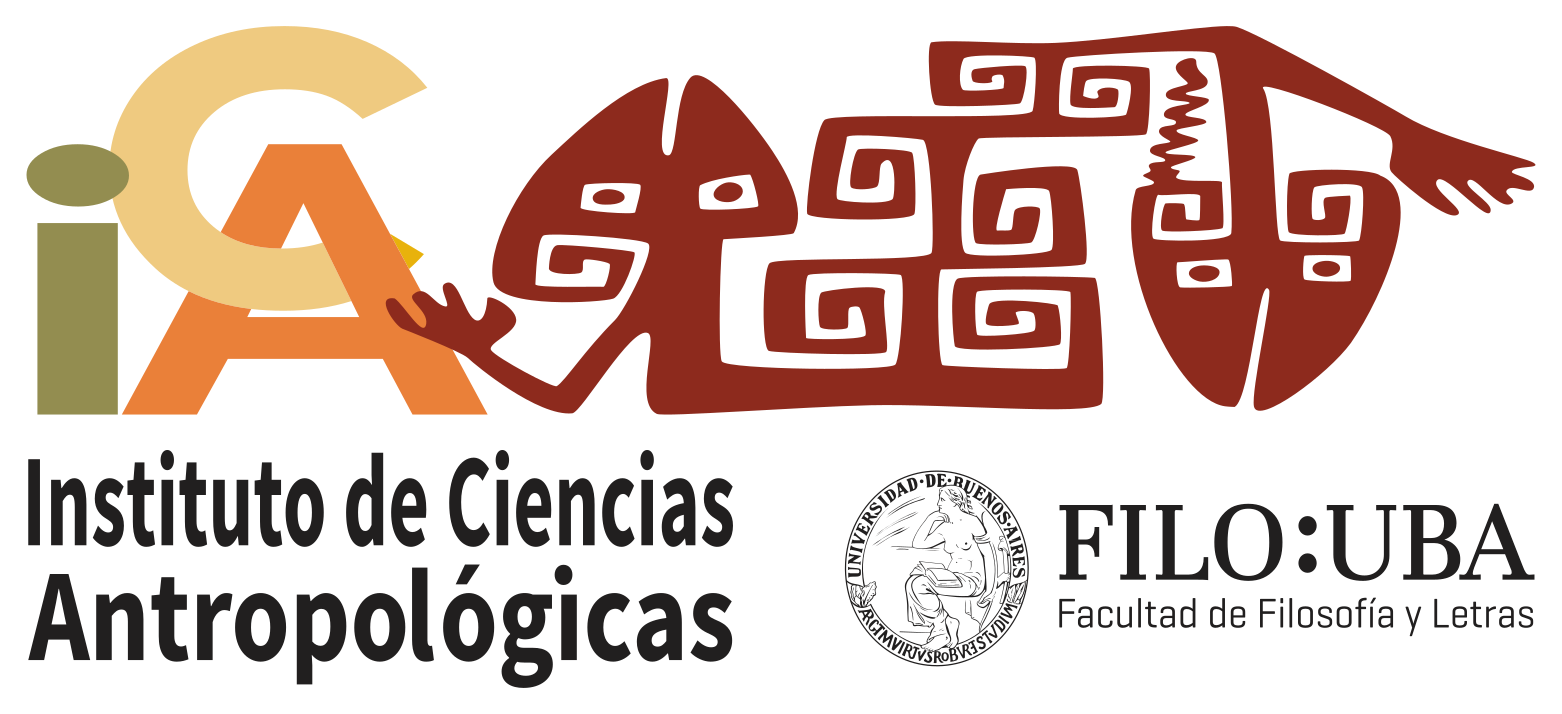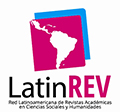“Money Is Good, but a Friend Is Better”
Uncertainty, Orientation to the Future, and “the Economy”
Abstract
Based on long-term ethnographic research in state-run settlement projects on former sugarcane plantations in Northeast Brazil, this article questions the evidence of “the economy” as a privileged framework for understanding the life situation of the poor, structured by precariousness and uncertainty about the future. Exploring the polysemy of Portuguese esperar (to wait, to hope, and to expect), it analyzes the plurality of orientations to the future among former sugarcane wageworkers included as beneficiaries in land reform projects, and their strategies to mitigate uncertainty in various configurations. If radical uncertainty lies out of reach of human hands, relative uncertainty may be acted on by mobilizing people. While money is desirable, it has a transitory character; and the value of friends lies in their potential to help, especially in case of a crisis. Ethnography thus suggests moving beyond an “economic anthropology” that aims to analyze “other economies” in order to explore the fields of opportunities and frames of reference that structure life situations and the local versions of oikonomia in its original meaning of “government of the household”.Downloads
References
ateson, G. (1935). Culture Contact and Schismogenesis. Man, 35(199), 178-183.
Bensa, A. (2006). Compter les dons: échanges non marchands et pratiques comptables en Nouvelle-Calédonie kanak contemporain. En N. Coquery, F. Menant y F. Weber (Eds.). Ecrire, compter, mesurer. Vers une histoire des rationalités pratiques (pp. 79-112). París: Editions ENS-rue d'Ulm.
Brian, E. (2009). Comment tremble la main invisible. In Incertitude et march’es. Paris: Springer.
Bloch, M. y Parry, J. (Eds.). (1989). Money and the morality of exchange. Cambridge: Cambridge University Press.
Bohannan, P. (1967). Africa’s Land. En G. Dalton (Ed.). Tribal and Peasant Economies (pp. 51-60). Nueva York: The Natural History Press.
Bourdieu, P. (1963). La Société Traditionnelle: attitudes à l’égard du temps et conduite économique. En Sociologie du Travail, l, 24-44.
Bourdieu, P. (1997). L’être social, le temps, et le sens de l’existence. Méditations pascaliennes. Paris: Le Seuil
Chayanov, A. V. (1966). On the Theory of Non-Capitalist Economic Systems. En The Theory of Peasant Economy (pp. 1-28). Homewood: The American Economic Association/Richard Irwin.
de L’Estoile, B. (2001). Projets, Paris, he ́sitations: notes sur trois plantations en situation d’incertitude. Cahiers du Br ́esil Contemporain 43/44
, 71– 124.
de l’Estoile, B. y Pinheiro, C. C. (2006). Projetos, Apostas e Hesitações: Notas sobre três engenhos em situação de incerteza. En de l’Estoile, B. y Sigaud, L. (Eds.). Ocupações de terra e transformações sociais: uma experiência de etnografia coletiva. Río de Janeiro: Editora FGV.
de l’Estoile, B. y Sigaud, L. (Eds.) (2006). Ocupações de terra e transformações sociais : uma experiência de etnografia coletiva. Río de Janeiro: Editora FGV.
Eisenberg, P. L. (1974). The sugar industry in Pernambuco; modernization without change, 1840-1910. Berkley: University of California Press.
Finley, M. I. (1984). Aristote et l’analyse économique. En Économie et société en Grèce ancienne (pp. 263–292). Paris: Colin.
Fontaine, L. (2008). L'économie morale. Pauvreté, crédit et confiance dans l’Europe pré-industrielle. París: Gallimard.
Foster, G. (1961). The Dyadic Contract: a model for the social structure of a Mexican peasant village. American Anthropologist, 63(6), 1173-1192.
Garcia Jr., A. (1983). Terra de Trabalho: trabalho familiar e pequenos produtores. Rio de Janeiro: Paz e Terra.
Garcia Jr., A. (l989). Libres et Assujettis. Marché du travail et modes de domination au Nordeste. París: Ed. de la Maison des Sciences de l’Homme, Collection Brasilia.
Garcia, M.- F. (1993). Espace du marché et mode de domination. Etudes Rurales, 131-132, 57-72
Gudeman, S. y Rivera, A. (1990). Conversations in Colombia. The Domestic Economy in Life and Text. Cambridge: Cambridge University Press.
Hacking, I. (1975). The Emergence of Probability. Cambridge: Cambridge University Press.
Hann, C. y Hart, K. (2011). Economic Anthropology. History, Ethnography, Critique. Londres: Polity Books.
Heredia, B., Medeiros, L., Palmeira, M., Cintrão, R. y Pereira Leite, S. (Eds.). (2004). An analysis of the regional impacts of land reform in Brazil. Brasília: Ministry of Agrarian Development, NEAD.
Heredia, B. (1979). Morada da Vida. Trabalho Familiar de Pequenos Produtores do Nordeste do Brasil. Rio de Janeiro: Paz e Terra.
Keynes, J. M. (1974 [1937]). The General Theory of Employment. Quarterly Journal of Economics in The Collected Writings of John Maynard Keynes, XIV, 109-123.
Koselleck, R. (1995 [1979]). “Erfahrungsraum” und “Erwartungshorizont”: Zwei historische Kategorien. En Vergangene Zukunft. Zur Semantik geschichtlicher Zeiten (pp. 349-375). Frankfurt: Suhrkamp.
Kula, W. (1970). Théorie économique du système féodal. Pour un modèle de l'économie polonaise (XVIe-XVIIIe siècles). París: Mouton.
Lautier, B. (2007). Les politiques sociales au Brésil durant le gouvernement de Lula: aumône d'Etat ou droits sociaux. Problèmes d'Amérique latine, 63, 51-
Mauss, M. 1969 (1934). De'bat sur les “fonctions sociales de la monnaie” de François Simiand. En Mauss, Oeuvres, vol. 2. V. Karady, ed. (116– 120). Paris: Minuit
Mintz, S. (1974). Caribbean Transformations. Chicago: Aldine Publishing Company.
Mitchell, T. (2002). Rule of Experts: Egypt, Techno-Politics, Modernity. Berkeley: The University of California Press.
Neiburg, F. (2010). Os sentidos sociais da economia. En L. F. Dias Duarte y C. Benedito Martins (eds.)Antropologia. Horizontes das Ciências Sociais no Brasil (pp. 225-258). Barcelona; San Pablo: Anpocs. Discurso Editorial.
Palmeira, M. (1971). Feira e mudança econômica. Simpósio de Pesquisas do PPGAS. Río de Janeiro: Museu Nacional (mimeo).
Palmeira, M. (1977). Casa e trabalho: notas sobre as relações sociais na plantation tradicional. Contraponto, 2(2), 103-114.
Palmeira, M. G. S. (1979). The aftermath of peasant mobilization: rural conflicts in the Brazilian Northeast since 1964. En N. Aguiar (Dir.). The Structure of Brazilian Development (pp. 71-99) Nueva York: Transaction Books.
Palmeira, M. (1989). Modernização, Estado e questão agrária. Estudos Avançados, 3(7), 87-108.
Pereira, A. W. (1997). The End of the Peasantry: The Rural Labor Movement in Northeast Brazil, 1961-1988. Pittsburgh: University of Pittsburgh Press.
Pitt-Rivers, J. (1971). Friendship and Authority. En The People of the Sierra (pp.137-160). Londres: The University of Chicago Press.
Polanyi, K. (1957). Aristotle Discovers the Economy. En K. Polanyi, C. Arensberg y H. Pearson (Eds.). Trade and Market in the Early Empires (pp. 64-94). Chicago: Henry Regnery.
Rebhun, L. A. (1999). The Heart is Unknown Country: Love in the Changing Economy of Northeast Brazil. Stanford: Stanford University Press.
Redfield, R. (1965). Peasant Society and Culture. En The Little Community and Peasant Society and Culture (1-168). Chicago: The University of Chicago Press.
Rosa, M. (2004). As Novas Faces do Sindicalismo Rural Brasileiro: A Reforma Agrária e as Tradições Sindicais na Zona da Mata de Pernambuco. DADOS – Revista de Ciências Sociais, 47(3), 473-503.
Scott, J. (1976). The moral economy of the peasant. Rebellion and subsistence in Southeast Asia. Yale: Yale University Press.
Schutz, A. (1944). The Stranger: an essay in social psychology. American Journal of Sociology, 49(6), 499–507.
Schwartz, S. B. (1985) Sugar Plantations in the Formation of Brazilian Society: Bahia, 1550-1835. Cambridge Latin American Studies 52. Cambridge: Cambridge University Press
Sigaud, L. (1977). A Idealização do passado numa área de plantation. Contraponto, II, 115-126.
Sigaud, L. (1986). A luta de classes em dois atos: notas sobre um ciclo de greves camponesas. Dados, Revista Brasileira de Ciências Sociais, 29(3), 319–334.
Sigaud, L. (1993). Des plantations aux villes: les ambigüités d’un choix. Études Rurales, 132-133, 19-37.
Sigaud, L. (2000). Les paysans et le droit: le mode juridique de règlement des conflits. Information sur les sciences sociales, 38(1), 113-147.
Sigaud, L. (2006). Direito e coerção moral no mundo dos engenhos. Estudos Históricos, 9(18), 361-388.
Sigaud, L. (2008). A collective ethnographer: fieldwork experience in the Brazilian Northeast. Social Science Information, 47, 71-97.
Sigaud, L. (2010). Uma saga pernambucana. En Lygia Sigaud; Marcelo Ernandez; Marcelo C Rosa Ocupações e acampamento sociogênese das mobilizações por reforma agrária no Brasil (267-322). Rio de Janeiro, Brasil Garamond.
Simmel, G. (1903). Die Grossstädte und das Geistesleben. Jahrbuch der Gehe-Stiftung 9, 185-206.
Tepicht, J. (1973). Marxisme et Agriculture: Le Paysan Polonais. París: Armand Colin.
von Hayek, F. A. (1937). Economics and knowledge. Economica,, 4: 33–54.
von Mises, L. (1949). Uncertainty. In Human action: a treatise on ec-nomics. Pp. 105–118. New Haven, CT: Yale University Press.
Weber, M. (1968). Economy and society. Nueva York: Bedminister Press.
Wolf. E. (1969) Peasants Wars of the Twentieth Century. New York: Harper and Row
Wolf, E. (1971). Aspects of Group Relations in a Complex Society: Mexico. En T. Shanin (Ed.). Peasant and Peasant Societies (pp. 50-68). Harmonsworth: Penguin.

Esta obra está bajo una Licencia Creative Commons Atribución 4.0 Internacional
Cuadernos de Antropología Social sostiene su compromiso con las políticas de Acceso Abierto a la información científica, al considerar que tanto las publicaciones científicas como las investigaciones financiadas con fondos públicos deben circular en Internet en forma libre, gratuita y sin restricciones.
Los contenidos y opiniones expresadas en los artículos publicados son de entera responsabilidad de sus autores.
Los autores/as que publiquen en esta revista aceptan las siguientes condiciones:
- Los autores/as conservan los derechos de autor y ceden a la revista el derecho de la primera publicación, bajo la licencia de atribución de Creative Commons, que permite a terceros utilizar lo publicado siempre que mencionen la autoría del trabajo y a la primera publicación en esta revista.
- Los autores/as pueden realizar otros acuerdos contractuales independientes y adicionales para la distribución no exclusiva de la versión del artículo publicado en esta revista (p. ej., incluirlo en un repositorio institucional o publicarlo en un libro) siempre que indiquen claramente que el trabajo se publicó por primera vez en esta revista.















